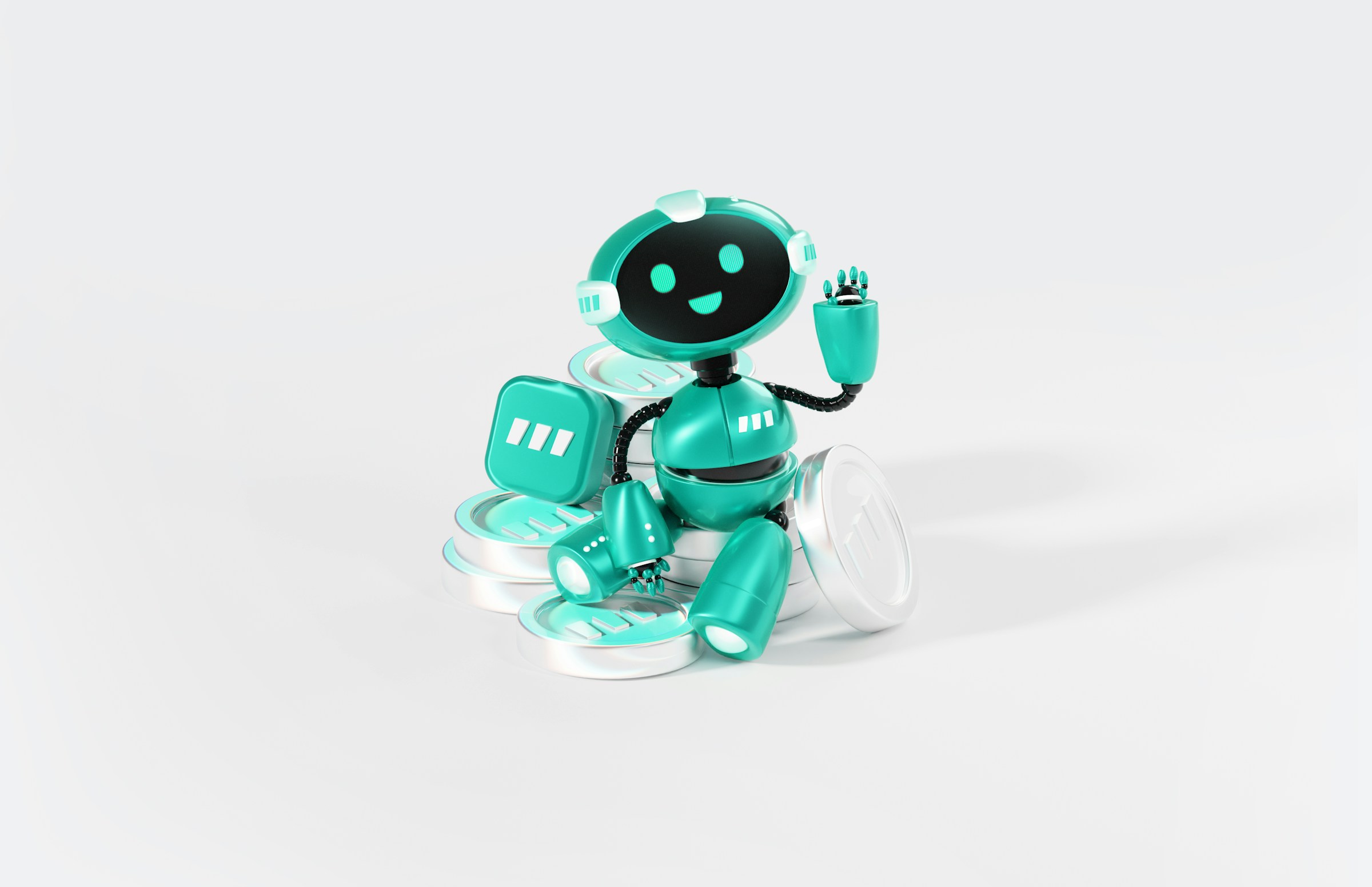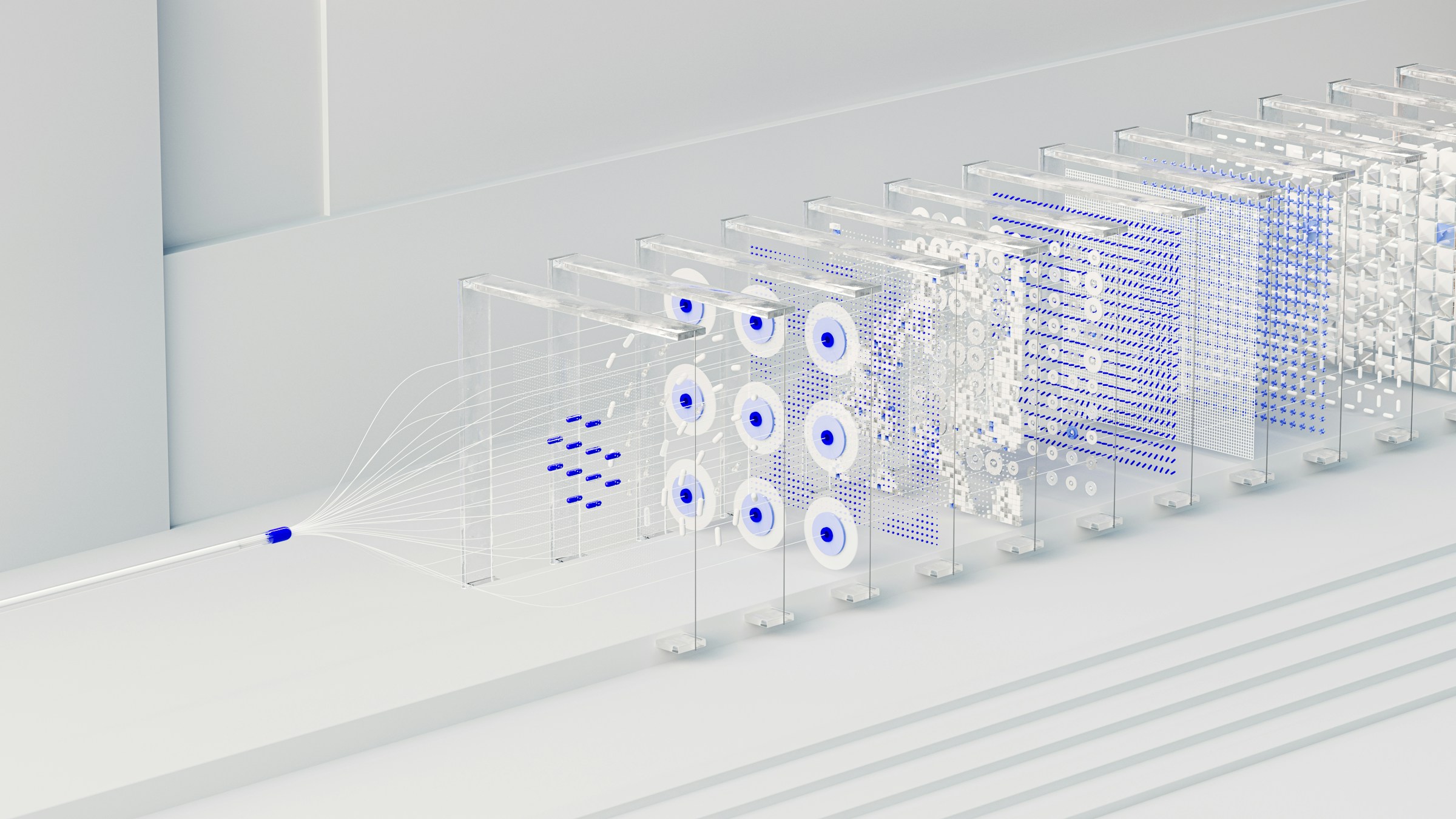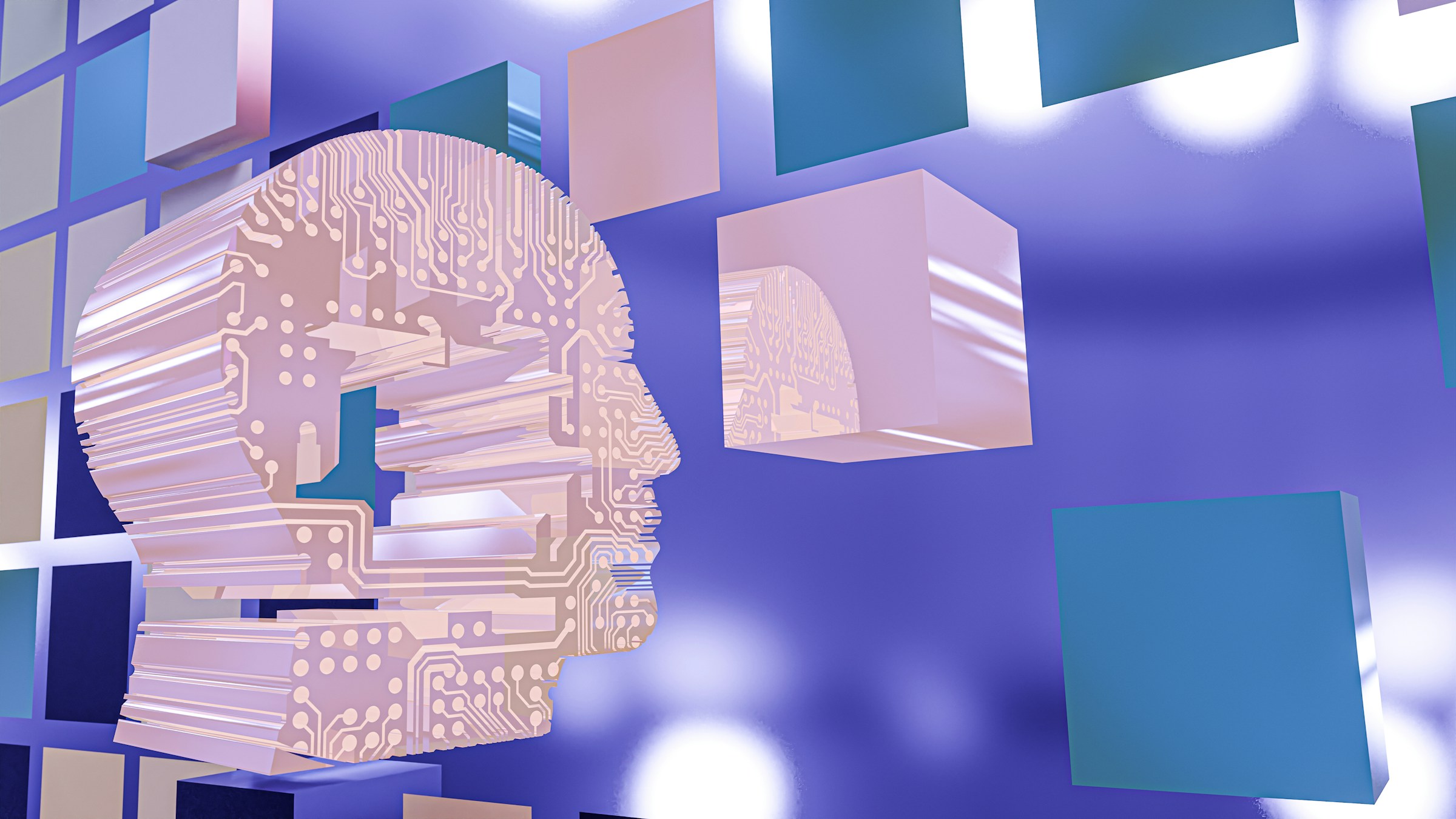Content
Building AI systems is challenging from the outset. Before a model even gets to work, it needs training. This training requires tons of data, which must be relevant, accurate, and bias-free to ensure the model can operate effectively and fairly. But how do you get this data? For many organizations, the answer lies in collecting and using existing datasets. However, these datasets often contain data that can be sensitive or personal. Organizations must ensure they can collect, use, and share data responsibly and ethically to build trustworthy AI systems that operate pretty and don't perpetuate existing biases.
This is where AI agents come in. In this guide, we'll explore examples of AI agents to show how these systems can assist with ethical data practices and help organizations build more trustworthy AI systems.
OpenSesame’s AI agent infrastructure offers a valuable solution to help organizations achieve their objectives when building trustworthy AI systems. This tool allows organizations to develop AI systems that operate responsibly and transparently.
What Is An AI Agent?

Artificial intelligence agents are software programs that automatically and intelligently complete tasks. An AI agent interacts with its environment and collects data. The agent uses this data to perform self-determined tasks to meet predetermined goals set by humans. For example, consider a contact center AI agent that wants to resolve customer queries.
The agent will automatically ask the customer different questions, look up information in internal documents, and respond with a solution. Based on the customer responses, it will determine whether it can resolve the query itself or pass it on to a human.
What Makes AI Agents Special?
All software autonomously completes different tasks as determined by the software developer. So, what makes AI or intelligent agents unique? AI agents are rational agents. They make logical decisions based on their perceptions and data to produce optimal performance and results. An AI agent senses its environment with physical or software interfaces. For example, a robotic agent collects sensor data and a chatbot inputs customer queries.
Then, the AI agent applies the data to make an informed decision. It analyzes the collected data to predict the best outcomes that support predetermined goals. The agent also uses the results to formulate the following action that it should take. For example, self-driving cars navigate around obstacles on the road based on data from multiple sensors.
Related Reading
• Trustworthy AI
• AI Problems
• Contextual AI
• AI Decision Making
15 Incredible Real-World AI Agent Examples You Must Know About

1. Siri and Alexa: Your Home’s AI Sidekicks
Siri and Alexa are like your home’s AI sidekicks. These virtual assistants by Apple and Amazon use natural language processing to answer questions, control smart home devices, and manage tasks.
Type of AI Agent
Intelligent Personal Assistants (IPA): These are task-oriented reactive agents that respond to user commands and queries, leveraging natural language processing (NLP) and machine learning.
2. IBM Watson: The Ultimate Brainiac
IBM Watson is a powerful AI platform that excels in data analysis, natural language processing, and machine learning. These technologies are used in healthcare to assist with diagnostics and treatment recommendations.
Type of AI Agent
Cognitive AI Agent: Watson is a knowledge-based agent capable of complex reasoning and decision-making in specific domains like healthcare and finance.
3. Tesla Autopilot: A Self-Driving Champion
Tesla Autopilot is an advanced driver-assistance system that utilizes AI to enable lane keeping, adaptive cruise control, and self-parking in Tesla vehicles.
Type of AI Agent
Autonomous Agent: This goal-oriented, autonomous agent uses deep learning to navigate and control vehicles with minimal human input, adapting to changing environments in real-time.
4. Google Duplex: The AI That Can Make Phone Calls for You
Google Duplex is an AI agent that can make phone calls on behalf of users, handling tasks such as booking reservations by conversing naturally with human operators.
Type of AI Agent
Conversational AI Agent: A task-based, reactive agent that can handle specific real-world tasks, such as making phone calls, by conversing naturally with humans.
5. OpenAI’s ChatGPT: An AI That Can Write Just About Anything
OpenAI’s ChatGPT is a conversational AI model capable of engaging in human-like dialogue, providing information, generating content, and answering queries in various domains.
Type of AI Agent
Conversational AI Agent: A large language model functions as a dialogue agent, capable of engaging in open-ended conversations and answering various user queries.
6. Duolingo: The Language-Learning App That Knows You
Duolingo is a language-learning app that uses AI algorithms to personalize lessons, track user progress, and adapt to individual learning styles.
Type of AI Agent
Learning AI AgentThis educational AI agent uses reinforcement learning and personalization to adapt content to a learner's progress and performance.
7. Netflix Recommendation Engine: Your AI-Powered Movie Expert
Netflix’s recommendation engine uses AI algorithms to analyze viewing habits to suggest movies and TV shows tailored to users’ preferences, enhancing user engagement and satisfaction.
Type of AI Agent
Recommender System AI Agent: A utility-based agent designed to predict user preferences and recommend relevant content based on their viewing history.
8. Salesforce Einstein: Your Automated Analytics Assistant
Salesforce Einstein is an AI-driven analytics tool integrated into Salesforce. It offers predictive insights and automation for sales, marketing, and customer service tasks.
Type of AI Agent
Predictive Analytics AI Agent: A learning and reasoning agent that provides predictive insights, automates processes, and assists customer relationship management (CRM) decision-making.
9. Cortana: Your Intelligent Assistant for Microsoft 365
Cortana is Microsoft’s virtual assistant that integrates with Office 365 to assist users with scheduling, reminders, and information retrieval using AI and natural language processing.
Type of AI Agent
Intelligent Personal Assistant (IPA): A task-based reactive agent that organizes tasks, reminders, and other office-related functions through voice or text commands.
10. Baidu’s DuerOS: A Voice Assistant for Smart Devices
Baidu’s DuerOS is an AI-powered voice assistant developed by Baidu, primarily used in smart devices and cars in China, enabling voice recognition and command execution.
Type of AI Agent
Voice-Activated Assistant: A task-based reactive AI agent integrated into smart devices, enabling voice-controlled interactions for various tasks like web search or smart home management.
11. IBM Project Debater: The AI That Can Debate Humans
IBM Project Debater is an AI system that can debate with humans, analyze large volumes of data, and construct arguments on various topics.
Type of AI Agent
Debate AI Agent: A cognitive AI agent capable of processing vast amounts of information and engaging in human-like debates using advanced reasoning and NLP.
12. NVIDIA’s Clara: An AI Assistant for Radiologists
NVIDIA’s Clara is an AI-powered healthcare application for medical imaging and diagnostics. It assists radiologists with image analysis and predictive analytics.
Type of AI Agent
Healthcare AI Agent: An intelligent decision-support agent designed for medical image analysis and diagnostics, using machine learning to assist healthcare professionals.
13. Adobe Sensei: The Creative AI Assistant
Adobe Sensei is an AI and machine learning platform that powers intelligent features across Adobe’s suite of creative products, enhancing tasks like image editing and content personalization.
Type of AI Agent
Creative AI Agent: A specialized AI agent that uses machine learning and computer vision to automate creative processes like image enhancement, content tagging, and video editing.
14. X.AI: An AI That Schedules Meetings for You
X.AI is an AI personal assistant that automates meeting scheduling by negotiating times between participants using natural language processing and machine learning.
Type of AI Agent
Task Automation AI Agent: This autonomous scheduling agent automates organizing meetings by handling back-and-forth communication via NLP and machine learning.
15. Cleverbot: An AI That Chats Like a Human
Cleverbot is an AI chatbot that learns from user interactions. This allows it to engage in conversational exchanges and improve its responses over time.
Type of AI Agent
Conversational AI Agent: A learning conversational agent that enhances its dialogue capabilities based on user interactions over time, acting as an entertainment or social AI.
OpenSesame: The Hallucination-Busting AI Agent Platform
OpenSesame offers innovative AI agent infrastructure software that grounds AI models in reality. Our platform reduces hallucinations, enhances reliability, and saves hours of manual checking. Key features include real-time hallucination reports, business data integration, multimodal AI expansion, and open-source frameworks.
We provide ungrounded truth recognition, prompt template extraction, accuracy scoring, and a hallucination dashboard. OpenSesame allows businesses to confidently build trustworthy AI systems, offering real-time insights without latency for high-performing, reality-grounded AI solutions. Try our AI agent infrastructure management software for free today!
How To Implement AI Agents Efficiently

1. Get Started with OpenSesame.dev for AI Agents
OpenSesame.dev is the place to start when building AI agents. OpenSesame provides innovative AI agent infrastructure software that grounds AI models in reality. This platform reduces hallucinations, enhances reliability, and saves hours of manual checking. Key features include real-time hallucination reports, business data integration, multimodal AI expansion, and open-source frameworks.
OpenSesame provides ungrounded truth recognition, prompt template extraction, accuracy scoring, and a hallucination dashboard. OpenSesame allows businesses to confidently build trustworthy AI systems, offering real-time insights without latency for high-performing, reality-grounded AI solutions. Try our AI agent infrastructure management software for free today!
2. Data Preparation and Integration
High-quality data is the foundation of effective AI agents. Begin by assessing your existing data, cleaning it, and formatting it for AI consumption. Data integration involves combining data from various sources into a unified format. This process may require resolving data inconsistencies and selecting appropriate tools for data management. Mastering this step provides your AI agent with a solid operational base.
3. Choosing the Right AI Agent Platform
Selecting an appropriate AI agent platform is crucial. Consider each platform’s capabilities, compatibility with your current systems, scalability potential, and available support. Conduct thorough research and test multiple platforms before making a decision. This approach ensures you find a platform that meets your needs and optimizes your AI agent’s performance.
4. Training and Monitoring AI Agents
Build and train your AI agent after preparing your data and selecting a platform. Feed it data and allow it to learn. This process may require multiple iterations to achieve optimal results. Once your AI agent is operational, ongoing monitoring is essential. Track its performance, address any issues, and refine its algorithms.
Regular training and monitoring maintain your AI agent’s effectiveness and value. For more information, consult our article on AI agent deployment. Adhering to these strategies sets the stage for successful AI agent implementation, which requires continuous attention to deliver value and meet objectives.
Related Reading
• Trustworthy AI
• AI Problems
• Contextual AI
• AI Decision Making
Benefits of AI Agents

Enhanced Efficiency and Productivity: AI Agents Take Over Tedious Tasks
Artificial intelligence's most significant advantage is its ability to transform efficiency and productivity. It does so by automating repetitive, time-consuming tasks that traditionally require a lot of human effort. AI helps businesses focus their expertise and resources on strategic initiatives, complex problem-solving, and creative endeavors. For example, at Amazon's Fulfillment Centers, AI-powered robots and automation systems streamline warehouse operations.
Robots can sort and move products, reducing manual labor, while AI algorithms predict demand and optimize stock levels. This increases productivity and reduces human error. Another example is UiPath, a leader in robotic process automation (RPA). UiPath automates routine tasks such as data entry, invoice processing, and customer support ticketing, allowing employees to focus on strategic tasks.
Improved Decision-Making: AI Agents Think Smarter
AI agents can significantly help businesses enhance decision-making by rapidly analyzing vast datasets, identifying patterns, and generating actionable insights. This data-driven approach helps minimize the risk of errors caused by human bias. Further, AI agents continuously learn and adapt their models based on new data, ensuring that businesses remain updated with the evolving environments.
One notable example is Google DeepMind's AlphaGo, which transforms decision-making in complex environments by defeating human Go champions. Its algorithms analyze millions of possible moves and patterns to make more precise decisions. Another example is Zest AI, which financial institutions use to make lending decisions. By analyzing huge datasets, it identifies creditworthiness patterns, reducing bias and improving loan approvals without increasing risk.
24/7 Availability and Scalability: AI Agents Are Always On
Another significant benefit of the intelligent business agent is its unmatched 24/7 availability and scalability. Agents in AI function around the clock, consistently handle tasks and provide an immediate response to the customers. Also, AI agents can scale to accommodate surges in workload as they can handle sudden spikes in online orders and manage a high volume of customer support requests.
For example, Bank of America’s Erica is an AI-powered virtual assistant that helps customers with banking services 24/7. It can provide real-time assistance with transactions, payments, and inquiries, improving customer experience without the need for human agents. Another example is Spotify, which constantly employs AI to process millions of songs and user preferences to provide personalized playlists around the clock. This allows Spotify to handle massive volumes of user interactions smoothly.
Personalized Customer Experiences: AI Agents Get to Know Your Customers
Personalization is a crucial aspect of business growth. A report by Infosys proves that 86% of customers say personalization impacts their purchase decisions. Intelligent agents in AI offer tailored product recommendations and relevant content by analyzing past interactions and purchase history. AI agents like chatbots and recommendation engines enhance customer journeys by providing instant support and personalized suggestions. One of the best examples of AI personalization is Netflix.
The streaming giant uses AI-driven recommendation algorithms to analyze viewing history and suggest customized content. By tracking user behavior, Netflix ensures that each viewer receives tailored movie and series recommendations, enhancing the viewing experience.
Another example is Sephora. The beauty retailer’s Virtual Artist tool uses AI to analyze customer skin tones and preferences and recommend personalized makeup products. This AI-powered approach to personalization increases customer satisfaction and drives sales.
Cost Reduction and Increased Revenue: AI Agents Help You Do More With Less
AI agents can save companies operating costs by automating repetitive operations and streamlining workflows, freeing up essential resources. They can also boost engagement and conversion rates through targeted marketing, product recommendations, and proactive customer care, increasing sales and profitability. One example is Coca-Cola. The beverage giant uses AI to optimize its supply chain, predict demand, and streamline manufacturing processes.
Automating bottling and logistics reduces labor costs and enhances supply chain efficiency, boosting profitability. Another example is Stitch Fix. This fashion retailer uses AI to curate personalized clothing selections for customers. Its AI-driven recommendations improve customer satisfaction and conversion rates, increasing revenue while cutting marketing costs.
Innovation and New Opportunities: AI Agents Break Ground on New Frontiers
AI agents generate innovation, opening doors for companies through data analysis, pattern recognition, and solution development. They make ground-breaking goods and services possible, improve client support, accelerate work, and transform transportation. With intelligent agents, businesses can stay ahead of the curve and contribute to disruptive breakthroughs that influence the future. For example, Tesla’s autonomous vehicles are transforming the transportation industry.
The AI-powered self-driving cars can navigate roads, avoid obstacles, and continuously improve their driving patterns, paving the way for fully autonomous transportation.
Another example is IBM Watson in healthcare. Watson Health is being used to analyze vast medical records and research datasets. Identifying patterns suggests potential new treatments, helping researchers and doctors innovate in disease treatment and drug discovery.
Try Our AI Agent Infrastructure Management Software for Free Today
OpenSesame supports businesses as they create AI agents that produce reliable, grounded-in-reality outputs. Their innovative AI agent management software reduces hallucinations and enhances AI systems' performance. By integrating business data into the foundation of AI models, OpenSesame helps build trustworthy AI systems that meet specific organizational needs.
Related Reading
• How to Improve Machine Learning Model
• AI Decision Making Examples
• How to Build an AI agent
• AI Agent Frameworks





